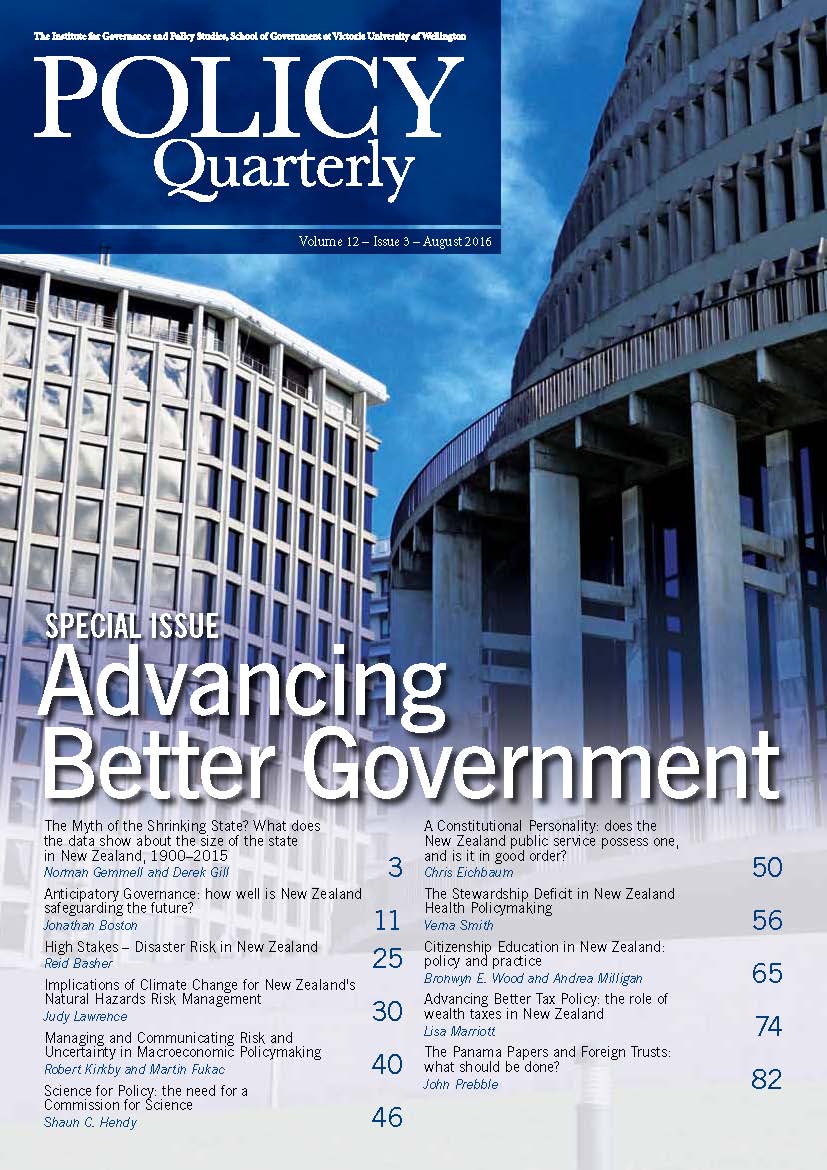Implications of climate change for New Zealand’s natural hazards risk management
DOI:
https://doi.org/10.26686/pq.v12i3.4605Keywords:
‘better government’, Intergovernmental Panel on Climate Change (IPCC), ‘adaptation deficit’, coastal areas, flood plains, emergency management system, fragmentation, Resource Management Act (RMA), Earthquake CommissionAbstract
The significant challenge posed for current and future generations by the impacts of climate change (IPCC, 2014) raises questions about whether ‘better government’ is required for adequate responses. Climate change exacerbates current natural hazard risk and creates impacts not experienced before. The Intergovernmental Panel on Climate Change (IPCC) concluded with ‘very high confidence’ that impacts from recent climate extremes reveal significant exposure and vulnerability of human systems to ‘current climate variability’ (IPCC, 2014, p.6). This ‘adaptation deficit’ (IPCC, 2014; Parry et al., 2009) highlights the sensitivity of society and its underpreparedness to change. The concentration of development in low-lying coastal areas and on flood plains that will be increasingly exposed to climate change impacts, such as sea level rise and high-intensity rainfall events, compounds the problem.
Downloads
Downloads
Published
Issue
Section
License
Permission: In the interest of promoting debate and wider dissemination, the IGPS encourages use of all or part of the articles appearing in PQ, where there is no element of commercial gain. Appropriate acknowledgement of both author and source should be made in all cases. Please direct requests for permission to reprint articles from this publication to Policy-Quarterly@vuw.ac.nz.



